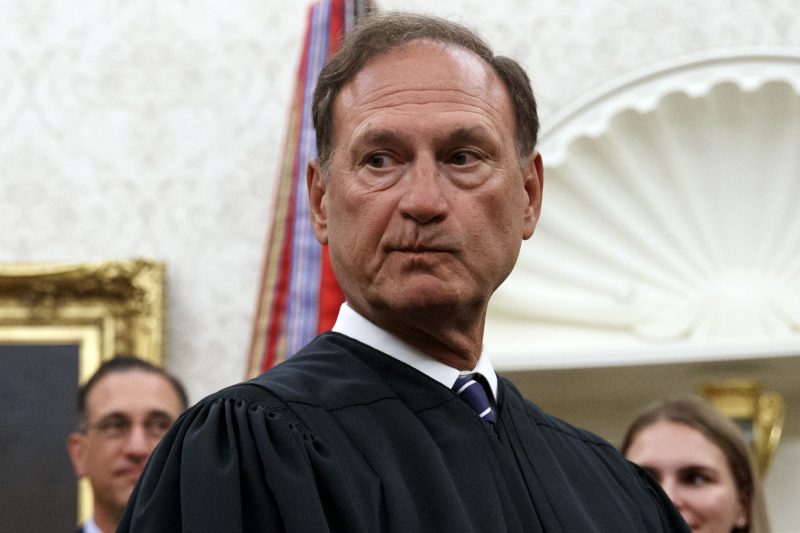In a recent decision that has generated significant debate and discussion within legal circles, Supreme Court Justice Samuel Alito has ruled that he meets the standard of impartiality required to preside over cases involving contentious issues. The decision has raised questions about the role of personal beliefs and ideologies in judicial decision-making and has brought the concept of judicial impartiality into sharp focus.
Justice Alito’s assertion of his own impartiality has sparked a range of reactions, with some praising his commitment to fairness and others questioning the validity of his self-assessment. Supporters of the decision argue that Justice Alito’s long record of service on the Supreme Court and his adherence to legal principles demonstrate his ability to set aside personal biases and render decisions based on the law. They point to his past opinions and rulings as evidence of his careful consideration of legal arguments and his willingness to engage with differing perspectives.
Critics, however, have expressed skepticism about Justice Alito’s claim of impartiality, citing his conservative ideology and previous rulings as evidence of potential bias. They argue that a judge’s personal beliefs and background inevitably shape their interpretation of the law and that true impartiality is a difficult standard to achieve. Concerns have also been raised about the potential impact of Justice Alito’s decision on public confidence in the judiciary and the perception of fairness in the legal system.
The debate over judicial impartiality is not a new one, and it raises fundamental questions about the nature of justice and the role of the judiciary in a democratic society. The concept of impartiality is central to the rule of law, as it ensures that judges apply the law fairly and without favoritism. However, achieving true impartiality is a complex and elusive goal, given the inherent subjectivity of human judgment and the influence of personal experiences and beliefs.
In the case of Justice Alito, the question of impartiality is further complicated by the politicized nature of the Supreme Court and the high-stakes decisions that come before it. The Court’s rulings on issues such as abortion, affirmative action, and LGBTQ rights can have far-reaching consequences for individuals and society as a whole, making the question of judicial impartiality particularly contentious.
Ultimately, the debate over Justice Alito’s decision highlights the challenges inherent in ensuring a truly impartial judiciary and the importance of ongoing scrutiny and discussion of judges’ decisions and reasoning. As the Supreme Court continues to grapple with divisive and controversial issues, the need for transparency, accountability, and a robust understanding of judicial impartiality will only grow in importance.
